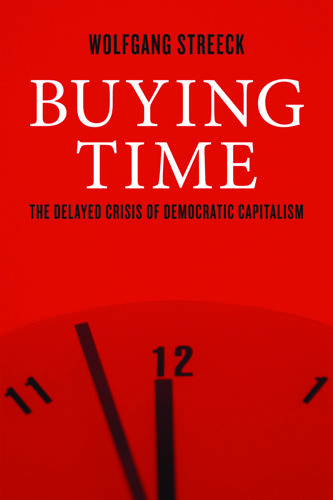
Buying Time: The Delayed Crisis of Democratic Capitalism
by
Wolfgang Streeck
Published 1 Jan 2013
Shefrin, Beyond Greed and Fear: Understanding Behavioral Finance and the Psychology of Investing, Oxford: Oxford University Press, 2002). 12 The Citibank research department developed this as a positive concept, to dispel fears among the select customers of the bank’s private banking department that their future prosperity would depend, as in the Keynesian world, on the material welfare of the broad masses (Citigroup Research, Plutonomy: Buying Luxury, Explaining Global Imbalances, 16 October 2005; Citigroup Research, Revisiting Plutonomy: The Rich Getting Richer, 5 March 2006). 13 Against the advice of any number of people who claimed to know better, Germany had defended its industrial base and moved only slowly, in the 1980s and 1990s, in the direction of an American or British-style ‘service society’.
…
Canedo, Eduardo, The Rise of the Deregulation Movement in Modern America, 1957–1980, New York: Columbia University Press, 2008. Castles, Francis G. et al., ‘Introduction’, in Francis G. Castles et al. (eds), The Oxford Handbook of the Welfare State, Oxford: Oxford University Press, 2010, pp. 1–15. Citigroup Research, Plutonomy: Buying Luxury, Explaining Global Imbalances, 16 October 2005. ———. Revisiting Plutonomy: The Rich Getting Richer, 5 March 2006. Citrin, Jack, ‘Do People Want Something for Nothing? Public Opinion on Taxes and Government Spending’, National Tax Journal, vol. 32/2, 1979, supplement, pp. 113–29. ———. ‘Proposition 13 and the Transformation of California Government’, The California Journal of Politics and Policy, vol. 1/1, 2009, pp. 1–9.
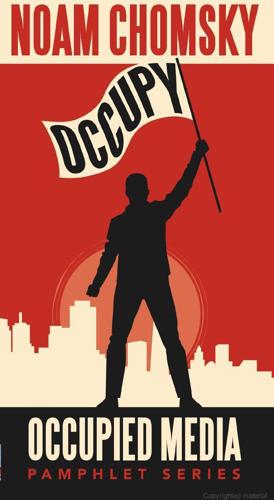
Occupy
by
Noam Chomsky
Published 2 Jan 1994
For decades, Citigroup has been one of the most corrupt of the major investment banking corporations, repeatedly bailed out by the taxpayer, starting in the early Reagan years and now once again. I won’t run through the corruption—you probably already know about it—but it’s pretty astonishing. In 2005, Citigroup came out with a brochure for investors called “Plutonomy: Buying Luxury, Explaining Global Imbalances.” The brochure urged investors to put money into a “plutonomy index.” The memo says “the World is dividing into two blocs - the Plutonomy and the rest.” Plutonomy refers to the rich, those who buy luxury goods and so on, and that’s where the action is. They said that their plutonomy index was way out-performing the stock market, so people should put money into it.
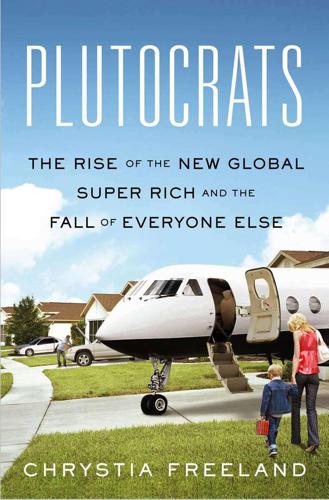
Plutocrats: The Rise of the New Global Super-Rich and the Fall of Everyone Else
by
Chrystia Freeland
Published 11 Oct 2012
A 2011 OECD report showed “Divided We Stand: Why Inequality Keeps Rising,” OECD report, December 2011. “I’ve never understood in my life” CF interview with Naguib Sawiris, November 18, 2011. “the World is dividing into two blocs” Ajay Kapur, Niall Macleod, and Narendra Singh, “Plutonomy: Buying Luxury, Explaining Global Imbalances,” Citigroup Global Markets Equity Strategy report, October 16, 2005. “The U.S. stock markets and the U.S. economy” James Freeman, “The Bullish Case for the U.S. Economy,” Wall Street Journal, June 4, 2011. “very distorted” Alan Greenspan, interview on NBC’s Meet the Press, August 1, 2010.
…
Brian Arthur, “The Second Economy,” McKinsey Quarterly, October 2011. Facebook’s Mark Zuckerberg Zuckerberg attended Ardsley High School for two years before transferring to Phillips Exeter Academy. “Dopamine, a pleasure-inducing” Ajay Kapur, Niall Macleod, and Narendra Singh, “Plutonomy: Buying Luxury, Explaining Global Imbalances,” Citigroup Global Markets Equity Strategy report, October 16, 2005. “I recognize that sometimes survival requires a positive effort” CF interviews with George Soros, May 2009 and December 2008. “My theory of bubbles was a translation” CF interview with George Soros, May 2009.
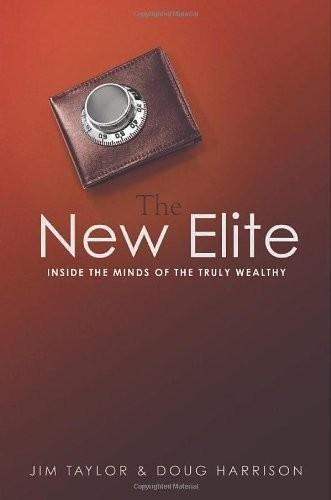
The New Elite: Inside the Minds of the Truly Wealthy
by
Dr. Jim Taylor
Published 9 Sep 2008
In both economies, effective marketing is about meeting people’s unmet needs and developing communications that resonate with their attitudes. As we’ve seen, the attitudes of the wealthy are more likely those of mainstream Americans than one might have anticipated. Notes 1. Ajay Kapur, Niall Macleod, and Narendra Singh, ‘‘Plutonomy: Buying Luxury, Explaining Global Imbalances,’’ research report, Citigroup Global Markets, http://www.billcara.com/archives/ Citi%20Oct%2016,%202005%20Plutonomy.pdf (accessed April 14, 2008). 2. Daniel Gross, ‘‘Don’t Hate Them Because They’re Rich: The Trickle-Down Effect of Ridiculous, Ostentatious Wealth,’’ New York magazine, April 11, 2005, http://nymag.com/nymetro/news/ culture/features/11721 (accessed April 14, 2008). 3.
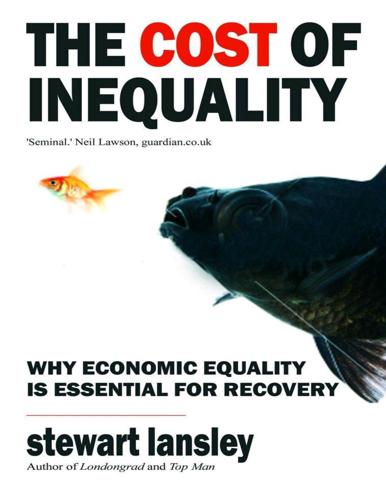
The Cost of Inequality: Why Economic Equality Is Essential for Recovery
by
Stewart Lansley
Published 19 Jan 2012
, The Economist, 29 August, 2010. 245 Glaeser, op. cit. 246 Atkinson and Morelli, op. cit. p 57. 247 JP Fitoussi and F Saraceno, op. cit. 248 M Iacoviello, ‘Household Debt and Income Inequality, 1963-2003’, Journal of Money, Credit and Banking, August, 2008. 249 Kumhof and Rancière, op. cit. p 3. 250 T Cowen, ‘The Inequality That Matters’, The American Interest Online, Jan-Feb, 2011. 251 Moss, Harvard Magazine, op. cit. 252 Ajay Kapur et al, ‘The Global Investigator: Plutonomy: Buying Luxury, Explaining Global Imbalances’, Citigroup Equity Research, October 14, 2005. 253 RN Goodwin, ‘The Selling of Government’, Los Angeles Times, 30 January 1997. 254 J Stiglitz, The Roaring Nineties, Allen Lane, 2003. 255 K Phillips, ‘Too much wealth, too little democracy.’ Challenge, September, 2002. 256 Guardian, 19.11.03. 257 Time, 26 February, 2011. 258 H Williams, Britain’s Power Elites, Constable, 2006, p 164. 259 N Matthiason & Y Bessaoud, Growth in City Donations to the Conservative Party, Bureau for Investigative Journalism, February 2011. 260 CRESC, 2009, op. cit. p 23. 261 G Soros, ‘The Crisis and What to do About It’, New York Review of Books, 4 December, 2008. 7 LIVING ON BORROWED TIME One evening in late 2004, a couple who had been living in a small council house in Bradford for ten years got an unexpected knock on the door from a mortgage salesman.
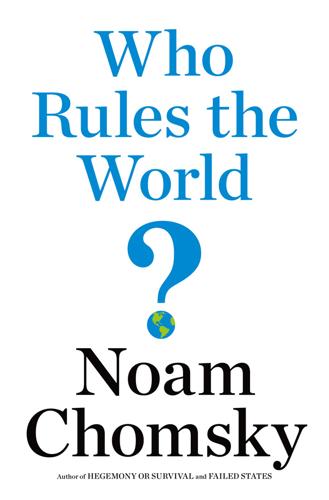
Who Rules the World?
by
Noam Chomsky
Robert Pear, “New Jockeying in Congress for Next Phase in Budget Fight,” New York Times, 3 August 2011. 27. Stephanie Clifford, “Even Marked Up, Luxury Goods Fly Off Shelves,” New York Times, 3 August 2011. 28. Louis Uchitelle, “Job Insecurity of Workers Is a Big Factor in Fed Policy,” New York Times, 27 February 1997. 29. Ajay Kapur, “Plutonomy: Buying Luxury, Explaining Global Imbalances,” 16 October 2005, as found at http://delong.typepad.com/plutonomy-1.pdf. 30. Noam Chomsky, Making the Future: Occupations, Interventions, Empire and Resistance (San Francisco: City Lights, 2012), 289. 6. IS AMERICA OVER? 1. Elizabeth Becker, “Kissinger Tapes Describe Crises, War and Stark Photos of Abuse,” New York Times, 27 May 2004. 2.
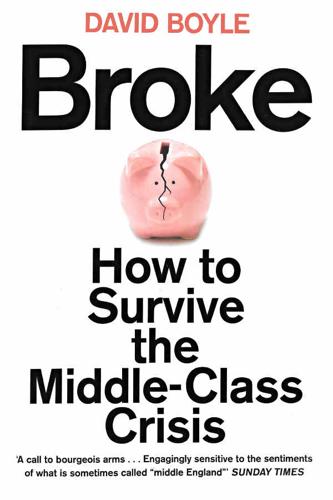
Broke: How to Survive the Middle Class Crisis
by
David Boyle
Published 15 Jan 2014
[23] Francis Fukuyama, ‘The Future of History: Can liberal democracy survive the decline of the middle class?’, Foreign Affairs, Jan./Feb. 2012. [24] William K. Carroll, The Making of a Transnational Capitalist Class: Corporate power in the 21st century (London, Zed Books, 2010). [25] Citigroup, ‘Plutonomy: Buying luxury, explaining global imbalances’, 15 Oct. 2005, quoted in Edward Fulbrook (2012), ‘The political economy of bubbles’, Real World Economics Review, no. 59. [26] Ferdinand Mount, ‘The new few or a very British oligarchy’, Guardian, 24 Apr. 2012. [27] Adam Raphael, Ultimate Risk (London, Bantam Press, 1994), 192
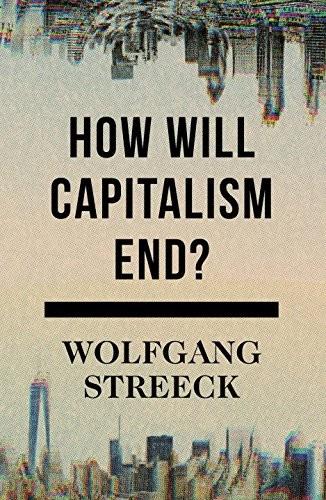
How Will Capitalism End?
by
Wolfgang Streeck
Published 8 Nov 2016
See, in this context, the call late last year by the director-general of the Confederation of British Industry, which represents manufacturing firms, for members to pay their workers better, as too many people are stuck in low-pay employment. See ‘Companies urged to spread benefits widely’, Financial Times, 30 December 2013. 38Citigroup Research, ‘Plutonomy: Buying Luxury, Explaining Global Imbalances’, 16 October 2005; Citigroup Research, ‘Revisiting Plutonomy: The Rich Getting Richer’, 5 March 2006. 39Nota bene that capitalism is about profit, not about productivity. While the two may sometimes go together, they are likely to part company when economic growth begins to require a disproportionate expansion of the public domain, as envisaged early on in ‘Wagner’s law’: Adolph Wagner, Grundlegung der politischen Oekonomie, 3rd edn, Leipzig: C.
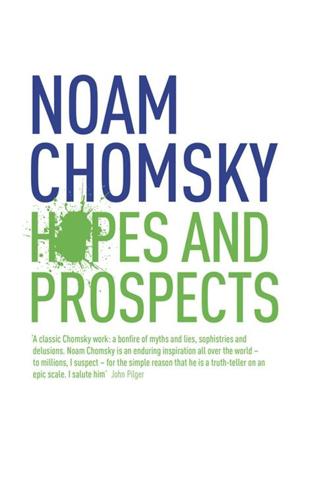
Hopes and Prospects
by
Noam Chomsky
Published 1 Jan 2009
Concentration, Kansas City Federal Reserve president Thomas Hoenig, August 6, 2009, cited by Zach Carter, “A Master of Disaster,” Nation, January 4, 2010, http://www.thenation.com/doc/20100104/carter. 25. Pete Engardio, “Can the Future Be Built in America?” Business Week, September 21, 2009. 26. Citigroup, “Equity Strategy, Plutonomy: Buying Luxury, Explaining Global Imbalances,” October 16, 2005; “Equity Strategy, Revisiting Plutonomy: The Rich Getting Richer,” March 5, 2006. “Why Service Stinks,” Business Week, October 23, 2000. 27. Wall Street Journal, June 15, 2009. 28. Thomas Catan and David Gauthier-Villars, Wall Street Journal, May 29, 2009. 29.
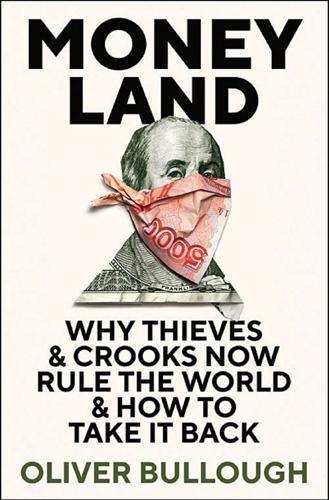
Moneyland: Why Thieves and Crooks Now Rule the World and How to Take It Back
by
Oliver Bullough
Published 5 Sep 2018
At the time, Kapur worked for Citigroup as director of Global Strategy Research, and his job was to find assets for his clients to invest in, which meant it was important for him to understand what was going on. He and his colleagues looked into the situation, and concluded that it was too early to be concerned. And then they thought some more, and read some more, and inspiration came: which they revealed to the world in an October 2005 report entitled ‘Plutonomy, Buying Luxury, Explaining Global Imbalances’. The footnotes to the report are packed full of works by academics who were then or who have since become heroes to the political left – particularly Thomas Piketty and Emmanuel Saez – but the bank’s analysts brought them into the service of the very wealthy. The report’s message was a simple one: the rich are getting richer, and that can make you rich.
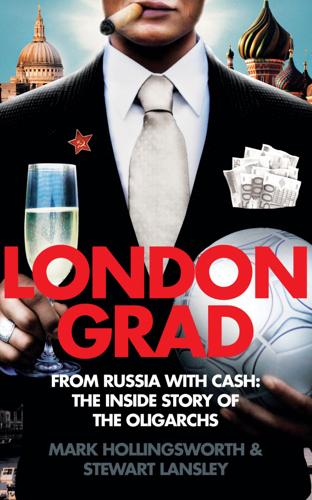
Londongrad: From Russia With Cash; The Inside Story of the Oligarchs
by
Mark Hollingsworth
and
Stewart Lansley
Published 22 Jul 2009
Sekules, ‘The Best Town to Make an Upper Lip Stiff’, New York Times, 7 February 2007. 10Editorial, Spear’s Wealth Management Survey, Winter 2006/7. 11Rosie Cox, The Servant Problem, Tauris, 2006. 12Financial Times, 27 October 2007. 13See, for example, Doreen Massey, World City, Polity, 2007, chapter 2; Chris Hamnett, Unequal City: London in the Global Arena, Routledge, 2003; Greater London Authority, London Divided: Income Inequality and Poverty in the Capital, London, 2003. 14Evening Standard, 6 July 2007. 15Simon Parker and David Goodhart, ‘A City of Capital’, Prospect, April 2007. 16Ajay Kapur et al., ‘The Global Investigator. Plutonomy: Buying Luxury, Explaining Global Imbalances’, Citigroup Equity Research, 14 October 2005. 17Luke Harding, Guardian, 14 October 2008. 18See note 1. 19Guardian, 25 October 2008. 20Andrew E. Kramer, New York Times, 18 October 2008. INDEX The pagination of this electronic edition does not match the edition from which it was created.
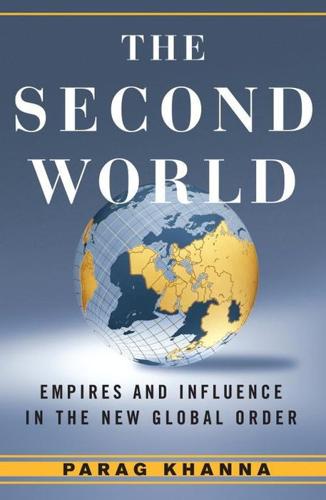
Second World: Empires and Influence in the New Global Order
by
Parag Khanna
Published 4 Mar 2008
For background on the relationship between money and territory, see Cohen, The Geography of Money (Ithaca, N.Y.: Cornell University Press), 18. 19. Joseph Stiglitz, “The Roaring Nineties,” Atlantic Monthly, October 2002. 20. Erik Erikson, Childhood and Society. 21. Ajay Kapur, Niall Macleod, and Narendra Singh, “Plutonomy: Buying Luxury, Explaining Global Imbalances,” Citigroup Industry Note, October 16, 2005. 22. See Robert B. Reich, The Future of Success (New York: Alfred A. Knopf, 2001). The minimum wage in 2006 in real terms is 37 percent below what it was in 1968. 23. The United States has spent less than 2 percent of GDP on infrastructure since 1980. 24.
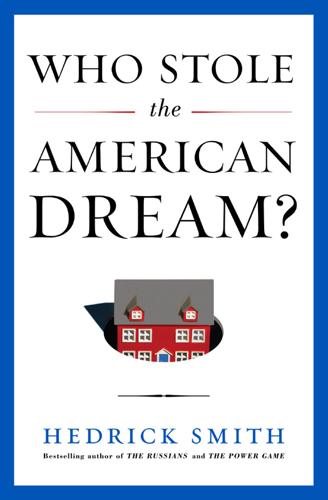
Who Stole the American Dream?
by
Hedrick Smith
Published 10 Sep 2012
Stiglitz, “Inequality: Of the 1%, by the 1%, for the 1%,” Vanity Fair, May 2011. 2 “The fact is” Michael Abramowitz and Lori Montgomery, “Bush Addresses Income Inequality,” The Washington Post, February 1, 2007. 3 “By 2004, the richest 1 percent” Robert Frank, Richistan: A Journey Through the American Wealth Boom and the Lives of the New Rich (New York: Crown Publishing Group, 2007), 3. 4 “It is absolutely excessive” Matthew Symonds, “Absolutely Excessive,” Vanity Fair, October 2005. 5 WELCOME TO THE PLUTONOMY MACHINE Citigroup, “Plutonomy: Buying Luxury, Explaining Global Imbalances,” October 16, 2005. 6 “The rich now dominate” Citigroup, “Revisiting Plutonomy: The Rich Getting Richer,” March 6, 2006, http://www.ifg.org. 7 A wealthy American plutocracy Paul Krugman, “Graduates Versus Oligarchs,” The New York Times, February 27, 2006; Stiglitz, “Inequality.” 8 “The top 1% alone control” David Hirschman, “The New Wave of Affluence,” Advertising Age, May 23, 2011; David Hirschman, “On the Road to Riches,” May 22, 2011, Ad Age blogs, http://adage.com. 9 Luxury goods were selling Stephanie Clifford, “Even Marked Up, Luxury Goods Fly off Shelves,” The New York Times, August 4, 2011. 10 Most people estimated Benjamin I.
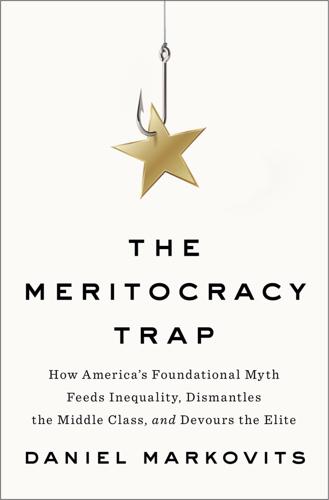
The Meritocracy Trap: How America's Foundational Myth Feeds Inequality, Dismantles the Middle Class, and Devours the Elite
by
Daniel Markovits
Published 14 Sep 2019
., Maura Judkis, “One of the Most Expensive Restaurants in Washington Is Going to Increase Its Prices,” Washington Post, January 23, 2017, accessed July 23, 2018, www.washingtonpost.com/news/going-out-guide/wp/2017/01/23/one-of-the-most-expensive-restaurants-in-washington-is-about-to-increase-its-prices/?utm_term=.3884ea4ce2ca. “ways of expropriating wealth”: Ajay Kapur, Niall Macleod, and Narendra Singh, “Equity Strategy: Plutonomy: Buying Luxury, Explaining Global Imbalances,” Citigroup, Industry Note, October 16, 2005, accessed July 23, 2018, https://delong.typepad.com/plutonomy-1.pdf. I borrow the term “income defense” from Winters, Oligarchy, 18–19. “only morons pay the estate tax”: See Julie Hirschfeld Davis and Kate Kelly, “Two Bankers Are Selling Trump’s Tax Plan.